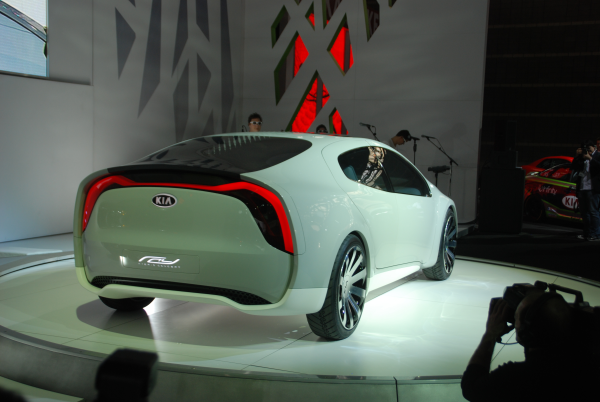Chicago is one of the four major auto shows in the U.S. (along with Los Angeles, Detroit & New York, chronologically coming third) and has the reputation as the biggest consumer show, drawing up to a million visitors from the metropolitan area to view the latest cars and trucks.
LA and Detroit were full of "green" cars -- electrics, hybrids, plug-in hybrids, clean diesels, fuel cells -- and featured fanciful concepts and soon-to-be on the market production versions to whet the appetite of show visitors. The media previews focused on the same vehicles and themes. The casual observer could be excused if he/she left with the impression that a major shift was on in vehicle propulsion and fuels. Not that there weren't the usual contingent of performance cars and trucks, but they tended to fade into the background of coverage.
Then we get to Chicago and it seems as those it's back to business as usual. Toyota introduces the new Avalon; Chevy a news Suburban SUV, Ford its Edge SUV and Honda its next generation Odyssey minivan.
Oh, everyone mentioned fuel economy (and how the latest models were better) and Ford also had electric and CNG versions of its Transit Connect commercial vehicle (and Kia even had a plug-in concept car), but the vibe of the press preview was decidedly deja vu. The view forward that was presented by auto makers was sharply focused on what might be sold this year and next -- and it was the good old internal combustion engine.

But in discussion with some environmentally minded friends at the show, we stumbled on an interesting statistic. A one mpg increase in the fleet average of new vehicles has an order of magnitude more positive impact (reduction) of petroleum use, greenhouse gas production and overall emissions than a million new electric vehicles on the market (a number not expected for more than a decade).
From there we got to talking about what can be done to increase the efficiency of the current fleet of vehicles (rather than just replacing them), noting one press conference at the show where Bridgestone claimed its new eco tires could increase fuel economy by 4 percent compared to traditional tires. Bridgestone Ecopia Tires
Of course, those tires are more expensive than regular ones (just like hybrid or clean diesel cars), but the consumer who does the math will find they pay back not only their extra cost, but even the whole cost with reduced fuel use. So, are you ready to spend more to save more?

